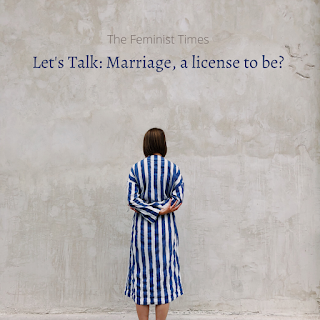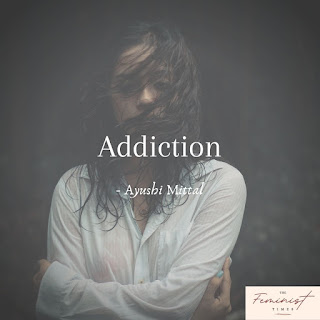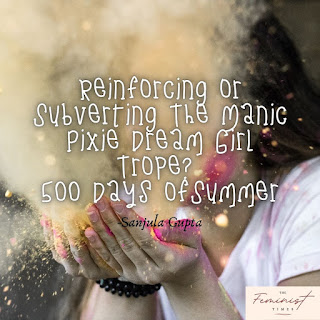Let's talk : Marriage, a license to be?
It was just a lousy afternoon and we were all lazing around in our drawing room deciding which movie to watch. Papa had the entire sofa to himself; I luckily, got myself the armchair as my legs happily rested on the foot stool. We were just about to press play, when my mother suddenly asked, “What’s that?” She was pointing towards the stool. “What”; was my answer. “That”, said she pointing towards my feet. “Oh, that’s the toe ring I got from Dilli Haat. Isn’t it pretty?”
With frowning brows my
mother replied, “I’ve told you a couple of times beta, there is an appropriate
time for certain things. Married women wear these. Yeh sab shaadi ke baad
karna!”
Had I been younger or had it
been one of those normal days where everything happened in a rush I’m sure I
wouldn’t have given it much of a thought and just conformed right away. However,
this time, I just shook my head in disbelief and wondered who made such rules.
And are these rules gender neutral or specific? Because I can’t recall the last
time I heard someone suggest that men should wear ties only after marriage, or
perhaps a pocket square or maybe a watch. Unfortunately, women hear it
thousands of times while growing up, in response to hundreds of things they
wish to do.
Can I get a tattoo? Was
wondering if I should get my belly pierced? Can I wear bikini on this trip? Can
I get myself some pretty Lingerie? Anklets?
Late Night? Drinks? Red Lipstick?
Just one answer to all our
questions, ‘do it all once you’re married!’
And just like that we are
all made to shut up and magically but unconsciously made to fantasize marriage.
Even when a little girl tries to drape a saree from her mother’s dupatta, wear
all her heavy jewellery and try putting a bindi with exact symmetry between
both the brows, she’s given the disclaimer sugared with compliments, that she
can do all of this after marriage. In a tone which suggests that the little
girl should look forward to it. And then through the course of growing up we
are reminded this often. We as a consequence then start equating marriage with
freedom. Freedom to live how we want and
do these little things we desire. Had there been some scientific reason behind it,
it would’ve been different. Religious backing however is present, say a few.
But that is present for almost everything these days. And if, let’s say I were
to believe that maybe there is an appropriate time for women to do things, then
why is there no ‘proper time’ for men to do certain things. For men marriage
has always been something to just tick off from their checklists.
Women on the other hand have
been conditioned to view marriage as the end goal. Furthermore, unsurprisingly,
majority of the women are not even allowed do these little things after
marriage which since childhood they were told they could. And the little rebel
streak they might have had is overshadowed by the constant unconscious training
they receive of letting go and seeking approval. This goes unsaid, but when
girls are told to live a certain way or even wear something after marriage it
is not to symbolise marriage as the ticket to any personal freedom. No. It
simply means the transfer from one figure of authority to another. Women then
seek answers or approval from the new family they become subservient to. The
catch however is, women after marriage are not supposed to be full of whims and
fancies according to norms and are rather expected to become the epitome of
sacrifice and dutiful towards their new home. This
policing of women’s existence happens and they often end up erasing their
previous identity, to become a new person that is approved by their new family.
But isn’t this expectation weird? They make it sound like girls need to
discover themselves after marriage; or as if life begins after marriage.
And
eventually, this woman who once had dreams that now lie repressed, tells her
daughter the same, ’do it all after marriage’. It’s a vicious cycle.
And once
you’re done thinking all of this, the grey reality suddenly hits you. We blame
our mothers and grandmothers and relatives to be so conservative and always
pleasing others, never doing things for themselves while we overlook this
rigorous training that women go through. They are made to believe that there’s
no life before marriage. And in that little moment I could see the remnants of
patriarchy, the shackles of which we still try to break away from. The deeper
you dig, the more you find it entrenched, even in the tiniest atoms of our
society. And this happens in ‘progressive’ families too. It becomes tradition.
Of course
things have changed in many homes, but these little baseless restrictions are
still imposed in most. Marriage still is considered to be ‘the’ most important
occasion in a woman’s life. So then someone has to break the pattern right? The
next time your mother or any relative gives you this piece of suggestion,
reason with them. It takes a good amount of courage you know, in seeing
unhealthy and toxic ways of life and deciding it won’t be passed to the next
generation; it’ll end with you. We can’t let them fall prey to this feudalist
system. Tell them that some piece of jewellery or the length of a cloth can’t
be a testimony of their marital status or certify them as good wives or even eligible
to wed. Help them come to terms with the fact that all such prohibitive tools
were used as mere mechanisms in this regime called patriarchy. To make women
adhere to it, unquestioningly. To make them subservient. To make them dislike
themselves and other women. And to avoid
the ‘threat’ an educated & free woman possessed.
Threat? Yes, as she can now call
out the bluff.
Kuhu Srivastava is a final year political science student, also the Founding Editor of The Feminist Times
‘I’m a big theatre
fanatic; love the smell of books; love to travel & shop; absolutely live
for coffee and oh, love my little polaroid camera.’



💓
ReplyDelete